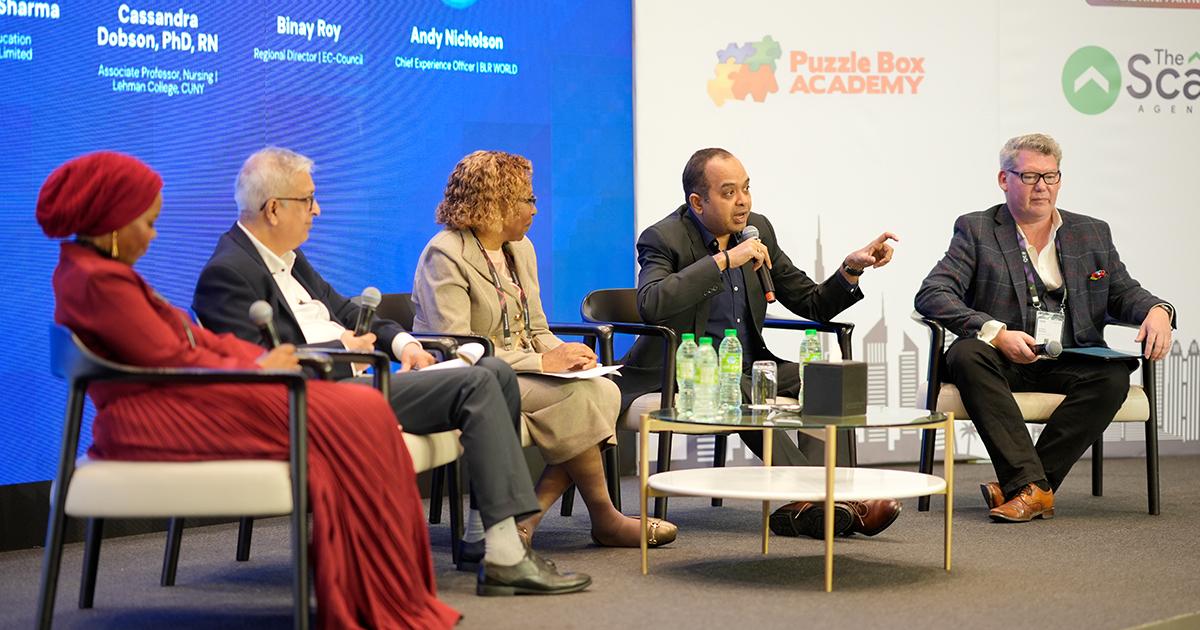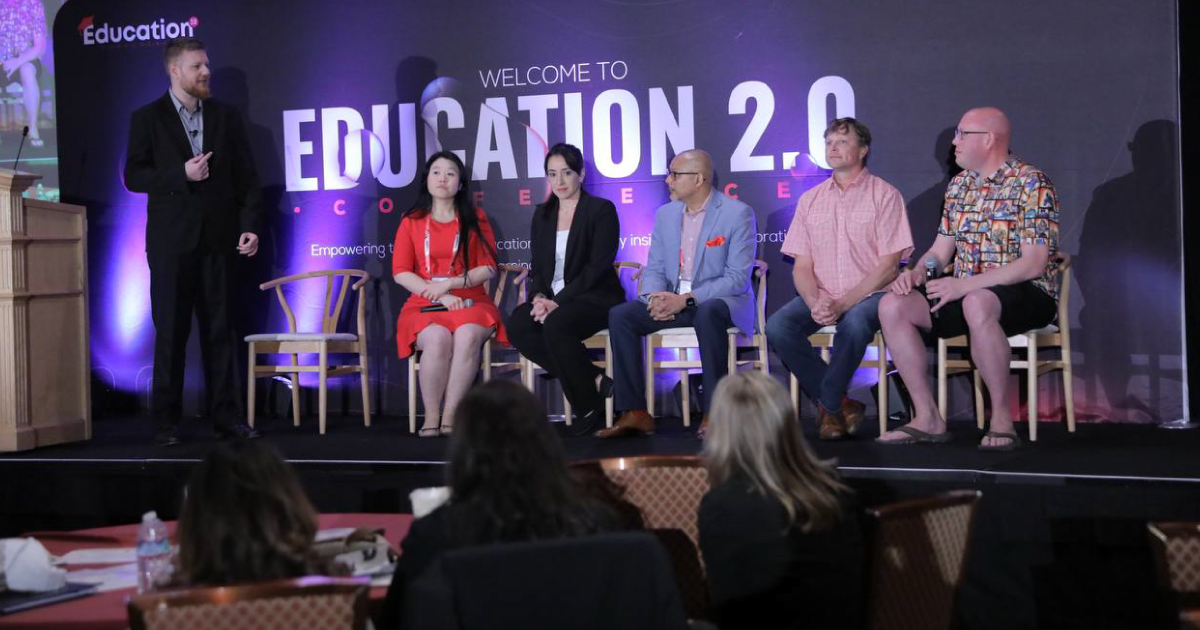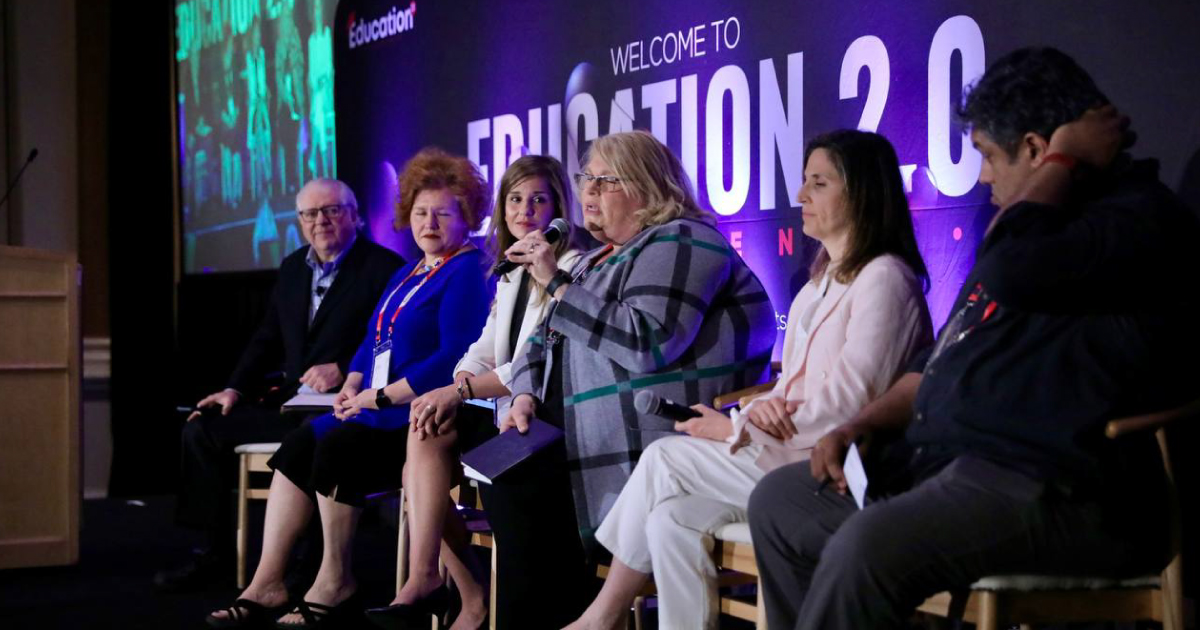Scam tactics are no longer limited to obvious email fraud or suspicious phone calls. Today, they wear a more polished face, disguised as professional invitations, flashy marketing, or glowing reviews that don’t quite add up. According to recent reports, scammers now cost the global economy over $1 trillion annually, with nearly 608 million people affected each year, resulting in approximately 1.67 million victims per day worldwide.

Image Credit: Exploding Topics
For professionals exploring speaking or attendance opportunities at an education conference, the risk of falling victim to a scam, particularly speaker scam attempts, has become increasingly common. The tactics have become more personal, and the messages more convincing. It’s no longer just about spotting potential issues; it’s about being proactive, informed, and cautious.
To support this effort, the experts at the Education 2.0 Conference have compiled insights into the most widespread scam tactics targeting professionals, based on trends, firsthand reports, and common warning signs. This blog provides an objective assessment of these threats. It offers practical guidance on how to stay safe from misleading outreach, spam tactics, and scam attempts that mask as legitimate opportunities.
1. Rise Of Sophisticated Event Scams
With the rise in virtual and hybrid learning, fraudulent entities have begun mimicking legitimate events to trap unsuspecting professionals. These fake events often use real-sounding titles, plagiarized speaker lists, and manipulated reviews to appear authentic. Individuals may be drawn in by early-bird discounts or speaker invitations, only to later discover they’ve registered for a nonexistent or less valuable education conference.
A recent trend of domain spoofing incidents highlights how scammers often create near-identical websites to mimic respected brands. High-profile events, such as the Education 2.0 Conference, have not been immune to scam attempts, with impersonators replicating official branding to mislead attendees. In some cases, fraudsters create fake websites or emails using the conference’s name and design, leading to scam and fraud alerts from individuals who were misled by these lookalike materials. While the real event maintains a transparent speaker lineup and authentic venue details, lookalike sites deceive participants with copycat aesthetics and unverifiable promises.
2. Spam Overload In Professional Outreach
Another prominent trend is the misuse of professional databases for unsolicited communication, often veiled as legitimate partnership invitations. Many users report email inboxes flooded with education conference invites, some appearing to come from reputable brands but ultimately leading to dead ends or payment requests with no receipt of service.
To distinguish spam from genuine communication, it’s crucial to evaluate tone, grammar, and follow-up consistency. For example, the Education 2.0 Conference scam concerns in the past arose due to spammers impersonating the brand's email addresses, sending misleading messages without the conference team’s knowledge. In response, the official organizers took measurable steps by adding a 24/7 Scam Tracker to protect their reputation.
3. Falsified Reviews To Create An Illusion Of Legitimacy
Fake or misleading reviews, whether excessively positive or strategically critical, can be used to distort perceptions and influence decisions. In some cases, these narratives are crafted to make a scam seem credible or to unfairly damage the reputation of a legitimate event. Many professionals have reported being misled after relying solely on surface-level reviews found on forums or search engines.
In the education space, this issue can be particularly harmful. Scam reviews often arise when bad actors post falsified experiences to discredit authentic conferences. That’s why it’s essential to go beyond one-off comments and seek out detailed, balanced feedback from credible sources.
Objective platforms, attendee insights, and official post-event summaries provide a clearer and more reliable view than anonymous commentary on loosely moderated forums.
4. Deposit Traps And Refund Evasions
One of the clearest indicators of a scam is payment-related pressure. Be cautious of events requiring urgent payments, cash transfers, or cryptocurrency deposits. Reputable education conferences will typically offer transparent refund policies, secure payment portals, and legal disclaimers.
In some cases, scammers pose as event organizers offering discounted tickets or speaker slots at reduced prices, but only if payment is made immediately. Participants drawn in by urgency tactics later realize there was no event, or they have been removed from all communication after the transaction. Reports surrounding the Education 2.0 Conference spam attempts reveal how fraudsters exploited urgency while impersonating the real organizing team to request money transfers.
Before sending funds, professionals are advised to:
- Check the official domain (often “.org” or “.com”).
- Look for reviews that provide context and include timelines.
- Contact the official email or customer support directly to confirm the communication.
5. Social Engineering & LinkedIn Phishing Scams
The latest scam frontier has moved to social platforms, especially LinkedIn. Bad actors are now creating convincing profiles that pose as conference organizers or representatives, often targeting professionals with offers to speak at high-profile events. These profiles typically feature polished job histories, profile photos, and fabricated endorsements to build credibility.
In several reported cases, individuals received direct messages inviting them to join a speaker lineup, followed by requests for personal documents like passport scans or upfront “speaker listing fees.” These scams exploit the professional tone and trust associated with LinkedIn, making them harder to spot at first glance. As always, legitimate organizers will follow up with official communication and provide transparent documentation before requesting any sensitive information.
Professionals should remain cautious of:
- Job offers or speaker invites that come without prior engagement.
- Requests to move the conversation to WhatsApp or Telegram quickly.
- Profiles with limited connections but elaborate bios.
Education 2.0 Conference Urges Vigilance As Scam Cases Rise

When evaluating opportunities, whether it's a speaking invite or conference participation, context matters. A polished email or professional-looking profile isn’t always proof of legitimacy. Instead of relying solely on first impressions, professionals should take a moment to assess the whole picture: Is the communication consistent? Are the event details verifiable? Is the tone transparent and aligned with industry norms?
In conclusion, awareness, critical thinking, and proactive verification enable professionals to avoid scams and maximize the value of educational opportunities in today’s digital era.
Frequently Asked Questions
1. What are the most common scam tactics targeting professionals today?
Fake event invites, speaker scams, misleading reviews, and impersonation on LinkedIn are among the most reported tactics.
2. How can I verify if an education conference is legitimate?
Check for a professional website, secure payment portals, a transparent speaker list, and verified contact information.
3. Is the Education 2.0 Conference a scam?
No, it is a legitimate event, though scammers have impersonated it in the past; always verify communications through official channels.
4. How does the Education 2.0 Conference protect participants from scam attempts?
The team uses domain security measures, a scam alert tracker, and direct communication protocols to safeguard attendees.
5. Can I trust speaker invitations from the Education 2.0 Conference?
Yes—If they come from verified conference emails and follow a clear, professional outreach process.












